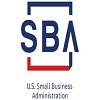Common Reasons for IND Clinical Holds
08/09/2019
Category: ind consulting
After sponsors and their Pre-IND consulting firm have built a great foundation, they will be ready to file an Investigation New Drug (IND) application. IND applicants hope to pursue their clinical studies without any hiccups. Sponsors submitting IND applications undergo a thirty-day review. The IND does not get approved by the FDA, instead it becomes effective thirty days after the FDA acknowledges receipt of the application. If the FDA finds deficiencies, the sponsor can correct them within the thirty-day review period without delaying the effective date. The FDA utilizes clinical holds to delay proposed clinical investigations or to suspend active investigations. Grounds for clinical holds can vary and it is important to understand IND regulatory standards. The sponsor may want to contact the Pre-IND consulting firm they worked with during the Pre-IND phase or reach out to an IND consulting firm that can assist them with the IND.
Phase I Clinical Holds
The five most common reasons for clinical holds during phase I are:
- Unreasonable risk of human harm that can lead to illness or injury
- Unqualified investigators due to lack of training or experience
- Misleading or incomplete investigator’s brochure
- Insufficient information to perform a risk assessment for study subjects
- Gender bias in a study of patients with a life-threatening disease that affects both genders
Gender bias does not apply when the following circumstances apply:
- Studies are applicable to only one gender
- Studies are conducted in individuals who don’t have the disease for which the drug intends to treat
- Another study that doesn’t exclude individuals of the other gender with reproductive potential is being conducted concurrently, has been conducted, or will take place with the same investigation al product within a time agreed by the FDA.
Phase II & III Clinical Holds
When a sponsor is far along in the IND, such as phase II & III clinical studies, the sponsor should have a good working relationship with their IND consulting firm who can help them avoid clinical holds during these phases. In addition to the phase I reasons for clinical holds, if the protocol for the investigation is deficient in meeting its objectives due to a design flaw, the FDA will issue a clinical hold. The FDA issues clinical holds for any study inadequately designed or lacking control. However, prior to ordering any clinical hold, the FDA will attempt to resolve the matter with the sponsor.
The FDA can issue a clinical hold by telephone, writing, or any other form of communication. A formal explanation of the clinical hold will be given within 30 days by the FDA. An IND consulting firm will help the sponsor address the deficiencies in the appropriate time and method. The written response to the FDA should cite the deficiencies listed in the clinical hold letter. The FDA will review the sponsor’s response within 30 calendar days and will determine if the response satisfactorily addresses the deficiencies. The IND applicant is not able to proceed with their clinical trials until the FDA has notified the applicant that they may proceed and that the clinical hold was lifted. Sponsors can request assistance from their IND consulting firm in case of disagreement with the FDA and have the Ombudsman reconsider the decision. IND regulatory standards should be closely followed to prevent an inactive status which occurs when clinical holds last longer than one year. Clinical holds are burdensome but are used by the FDA as a control measure to mitigate risks to the subjects. Clinical holds can be avoided with excellently executed clinical study protocols.
Author Information
Christina Sanchez Miller, MPH has over 20 years of management, biologics, quality assurance and research experience in the medical field. She is a published author in scientific books, papers and has presented at several international conferences. Christina has developed medical applications in the biologics field. Her experience includes operations and consulting in FDA Adverse Event Reporting, FDA Product Deviation Reporting, FDA 483s, cGTPs, infection control, certified ISO Class 5, 7, 8 development and maintenance, QIC and auditing.
BRG is a global scientific & regulatory consulting firm with extensive experience in the strategic development of drug products, biologics, medical devices, combination products and in FDA regulatory affairs. BRG is an IND consulting firm focusing on ANDAs, INDs, and NDAs. The opinions and statements in this blog are those of the authors and do not necessarily reflect those of BRG. This blog is based on personal experience and reviews of information publicly available or identified in other database searches.
tagging: IND Consulting > ind regulatory > pre-ind consulting


